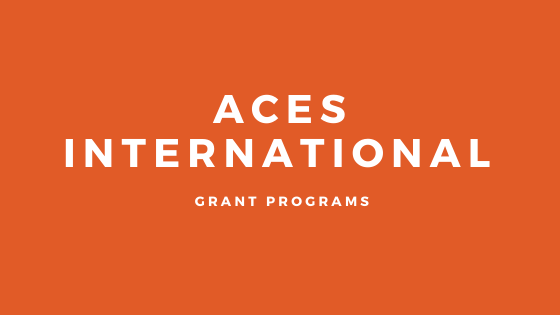ACES international grant programs reap big rewards

Two international grant programs coordinated by the Office of International Programs are helping ACES faculty gain exposure, forge new connections, and procure additional funding for their research projects.
“We recently checked in with some of our past grant recipients, and once again we were impressed by the magnitude of impacts that were reported. The initial funds awarded out of our office have led to additional funding and various other positive outcomes for the College of ACES,” says Alex Winter-Nelson, associate dean of international programs.
The most recent reporting shows that our internal international grant programs from 2017 to 2018 helped ACES faculty procure over $312,000 in additional funding, including:
- Peter Christensen (ACE) received a $100,000 grant from Uber for “Expanding Access to Mobility-on-Demand Services in Cairo.”
- Al Roca (Animal Sciences) received a $65,000 grant from the United States Fish and Wildlife Service, Rhinoceros and Tiger Conservation Fund, for “Genetic Analysis of Sumatran and Javan Rhinoceros by Indonesian Researchers.” Roca is working with Eijkman Institute.
- Zeynep Madak-Erdogan (FSHN) received a $80,000 grant from the National Institute of Health as part of the Chicago Health Equity Consortium seed grant for “Integrative molecular approaches to understand breast cancer disparities in Chicago.”
Even more awards are pending.
The ACES international grant recipients have also published numerous papers and presented their research all over the United States and around the world, including in China, Brazil, Germany, South Korea, Benin, and Guatemala.
The grants led to new collaborations with other institutions, including CIAT, UC-Davis, Instituto de Agrobiotecnología del Litoral, Argentina; University of Abomey-Calavi, Benin; University of Tennessee, Knoxville; the World Bank, Texas A&M Coffee Research & Education Center, Frinj Coffee, Whittier College, Sussex Medical School (United Kingdom), and the School of Pharmacy at the College of London.
Some additional impacts reported include:
- Anthony Studer hosted a Fulbright Scholar from Argentina for three months. “Hosting an international student in the lab was a great cultural experience for all the students in my research group,” Studer says.
- Two of Karen Kramer’s students received the Orville G. Bentley Undergraduate Research Award for working with her on a project funded with a 2018 spring seed grant.
- Hong Chen initiated a 5-year Cooperative Education 3+2 Program between FSHN/ACES and Hebei Agricultural University.
- Zeynep Madak-Erdogan developed a new class for spring 2020: Nutrition and Women's Health (FSHN 595)
Specific outcomes reported are from the 2017 & 2018 Matching Grants, 2017 Fall Seed Grants and 2018 Spring Seed Grants.
Read about our previous round of reporting here.
ACES International’s two primary grant programs include:
- The ACES International Seed Grants Program is advertised twice per year and provides small grants ($4,000) to stimulate and promote strong relationships between ACES faculty and international faculty that will develop and flourish into larger, sustainable, collaborative efforts in research, education, and outreach. See past recipients here.
- The ACES International Joint Research Program is advertised once a year, generally in the fall, and supports ACES faculty who work jointly with researchers based at approved peer institutions abroad who are funded at a matching level by their own institution or another agency. See past recipients here.
These grants are funded through the Arlys Conrad Endowment Fund.